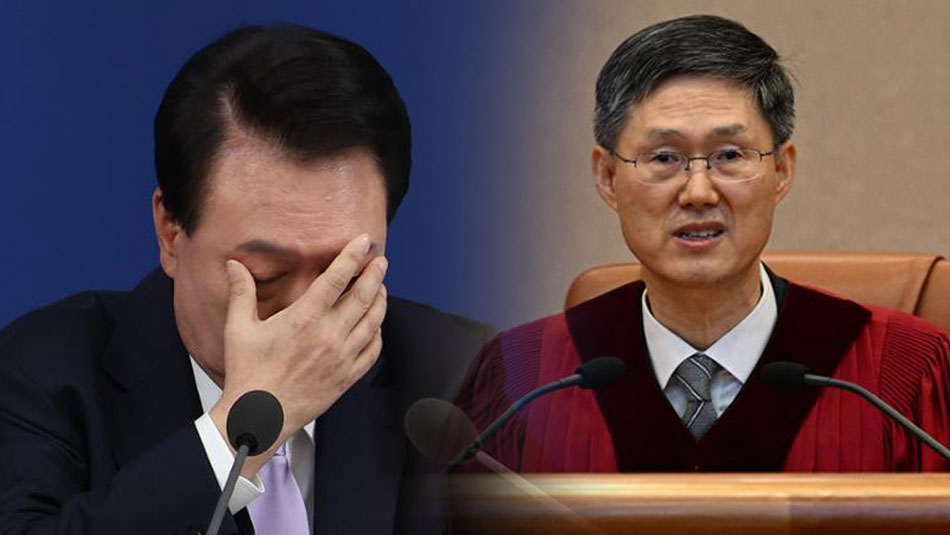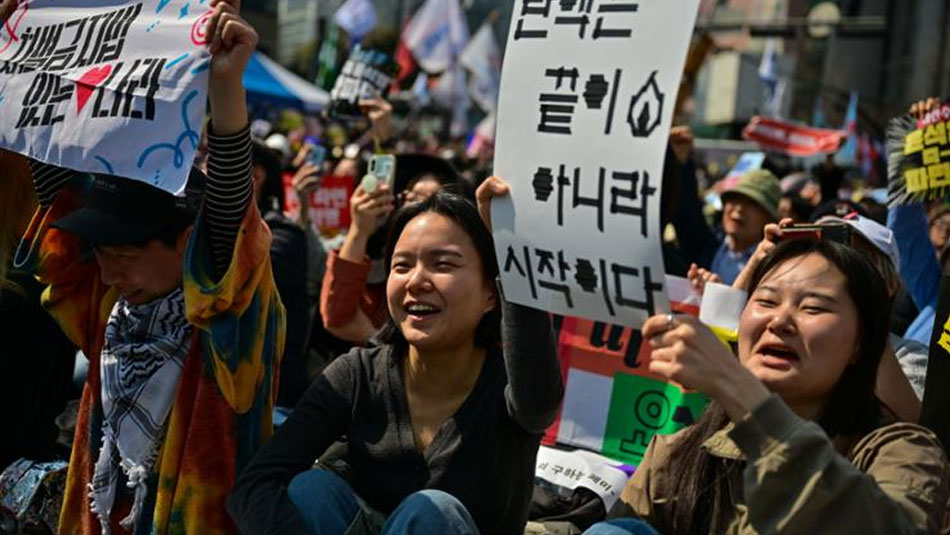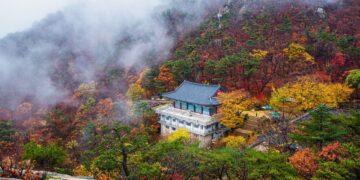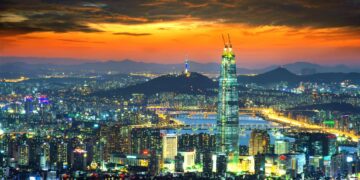Last Updated on 7 months by admin
South Korea is no stranger to political change, but even amid one of its most dramatic turns in recent memory, travelers might be surprised by just how steady the country feels. If you’re wondering whether it’s still safe to travel to South Korea post the April 2025 impeachment result of President Yoon Suk Yeol, here’s the honest answer: yes, it is—so long as you travel with a bit of awareness and curiosity.
While headlines may paint a picture of unrest, the reality on the ground tells a different story. Korea’s infrastructure is running smoothly, tourist spots are buzzing as usual, and daily life—for locals and travelers alike—continues with remarkable resilience. But this moment in Korean history does carry a unique energy, and that’s exactly why visiting now might just offer you a perspective that’s both eye-opening and unforgettable.
Quick Look at President Yoon Suk Yeol Impeachment in South Korea
In early April 2025, President Yoon Suk Yeol was officially removed from office after South Korea’s Constitutional Court ruled his martial law declaration unconstitutional. It was a historic moment—the first time a Korean president was ousted over such a move. What followed was a wave of peaceful civic action: candlelight vigils, organized marches, and renewed public discourse on democracy.

But here’s the part most travel advisories don’t emphasize—these gatherings have been well-managed, calm, and primarily confined to specific political districts in Seoul. Safety hasn’t been compromised, and for most tourists, life in Korea feels business as usual.
Post-Impeachment Result: Is It Safe to Travel to Korea Right Now?
In a word: yes. South Korea’s public safety standards are still among the highest in Asia. Police presence has increased slightly in central Seoul, but not in a way that feels alarming or intrusive. For travelers, the biggest changes will likely be temporary subway reroutes or minor traffic delays near protest zones—not threats to personal safety.
That said, it’s still smart to stay in the loop. Avoid politically sensitive areas during planned demonstrations, and build a little flexibility into your schedule. Your trip can—and should—go ahead as planned.
Crucial Things to Know If You’re Visiting Korea After the Impeachment
Protests Are Peaceful and Localized
You may encounter signs of civic gatherings near Gwanghwamun Square, the National Assembly in Yeouido, or outside the Constitutional Court in Anguk. But these protests are highly organized and largely symbolic. There’s been no reported violence, and police coordination has kept things running smoothly.

Trains, Flights, and Transit Are All Running Normally
Subways, buses, KTX trains, and airports haven’t missed a beat. A few stations—like Anguk—closed briefly on the day of the court ruling but reopened quickly. As of now, all major transport systems are operating without disruption.
Tourist Sites Are Open—With Fewer Crowds
Palaces, museums, and parks are all back to regular hours. Some government-run locations temporarily paused operations on April 4, but those closures were short-lived. If anything, the current travel climate has eased crowd congestion, giving you a more relaxed experience at popular attractions.
The Korean Won Has Dropped—And That Means Deals
Economically, the impeachment has shaken the market a bit. The KRW hit its lowest level in 16 years. While that’s a tough moment for locals, it—ironically—offers travelers lower exchange rates and potential discounts. Now’s a good time to revisit your accommodation and flight bookings—there may be better deals available than when you first planned your trip.
Tips for Post-Impeachment Travel to South Korea
While Korea remains safe and welcoming, a few smart travel moves can make your visit even smoother:
1. Stay Informed With Local Updates
Bookmark English-language news sites like Yonhap News or The Korea Herald for real-time updates. And don’t skip registering with your country’s embassy—they’ll send out alerts if there’s anything you should be aware of.
2. Steer Clear of Political Hotspots
Even if protests are peaceful, it’s best to avoid areas where demonstrations are likely to occur:
- Gwanghwamun Square
- Constitutional Court (Anguk)
- National Assembly (Yeouido)
- Presidential Office (Samgakji)
- Hannam-dong (Presidential Residence)
You won’t be missing much from a tourist’s point of view—and you’ll avoid unnecessary delays or detours.
3. Keep Plans Flexible
Choose hotels and tours with free cancellation or rescheduling options. Give yourself extra time to navigate busy districts. A little wiggle room can go a long way if street closures or events pop up.
4. Know Emergency Contacts
Keep your hotel’s address saved in both English and Korean. Have embassy numbers, emergency lines (like 119 for medical emergencies), and your airline’s contact info on hand—just in case.
The Spirit of Korea Is Still Alive—and So Is the Hospitality
Ask anyone who’s traveled to Korea during uncertain times, and they’ll tell you: the warmth of Korean hospitality never wavers. Whether you’re sipping tea in a quiet Bukchon Hanok Village or exploring cherry blossom-lined paths along the Han River, you’ll feel the same kindness and curiosity from locals as ever before.
In fact, many travel insiders suggest that this is a rare chance to witness history in real time while still enjoying Korea’s cherry blossoms, spring festivals, and vibrant street culture.
Politics May Shift, But the Heart of South Korea Stays Strong and Steady
Finally, every country has its own defining political moments—and the impeachment of President Yoon Suk Yeol in South Korea 2025 is certainly one of them. What matters is how they respond—and in South Korea’s case, it’s with resilience, transparency, and an unshaken commitment to progress. If you’re still on the fence about your travel plans, consider this your green light.
South Korea remains open, welcoming, and vibrant. From sizzling street food to serene temple stays, the beauty of the experience hasn’t changed. So pack your bags, bring an open mind, and don’t skip the kimchi jjigae in Insadong—this journey is still every bit worth it.
Related Posts
2,172 total views, 6 views today

















